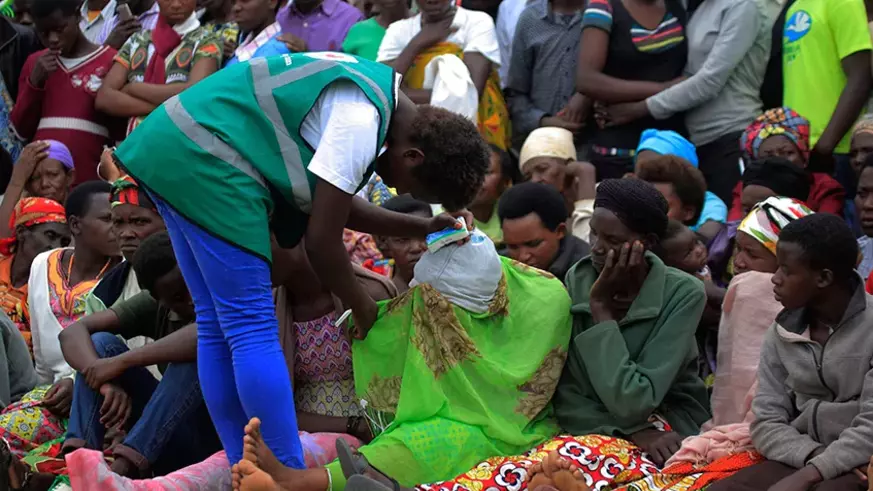
A research conducted to demonstrate differences in trauma exposure in mothers and daughters according to their genocide survival status reveals a common link of depression among Rwandan mothers and their daughters 27 years after the 1994 genocide against the Tutsi.
Researchers from the Neuro-Psychiatric Hospital (CARAES Ndera) and the University of Rwanda’s Center for Mental Health conducted the new research and found a link between post-genocide maternal depression and daughters’ depression.
“Family support counseling services and research to identify factors of intergenerational depression are needed,” the researchers recommend.
Key highlights are that: 23 per cent of mothers and 18.4 per cent of daughters met the criteria for depression; depression is more prevalent in urban participants than rural; the development of depression is related to trauma exposure and place of residence; and that mothers’ depression is associated with daughters’ depression.
In the years since the genocide against the Tutsi, it is noted; mental illness continues to be the greatest challenges facing the Rwandan population.
In the context of the 1994 Genocide, there are three different survival statuses within Rwandan women – those targeted by the genocide referred to as survivors, those in the country during the genocide but were not targeted referred to as ‘non-targeted’, and those who were outside the country, referred to as 1959 returnees.
“All these groups experienced the traumatic events differently. The literature shows that traumatic stress exposure is associated with depression,” reads part of a news article on the new research.
Besides demonstrating differences in trauma exposure in a sample of mothers and daughters according to their genocide survival status, the study also sought to examine differences in depression prevalence between these three groups of mothers and daughters as a function of their genocide survival status and place of residence.
It also examined the relationship between major depression, survival status, place of residence, and trauma exposure in the sample of mothers and daughters, including the relationship between mothers’ depression and daughters’ depression.
Regarding the research methods, it is noted,a “sample of 309 dyads of mothers and daughters” was recruited.
“Dyads just means two… so we looked at the mother and her daughter in each of the three groups. There were dyads of mother’s with their adult daughter,” Dr Cindi Cassady, a Clinical Psychologist at Icyizere Psyhotherapeutic Center, a specialized mental health care facility handling addiction and post-traumatic stress disorders, who was part of the research team told The New Times.
Results indicate that there is a significant difference in trauma exposure in the three survival categories of mothers and daughters. As noted, 23 per cent of mothers and 18.4 per cent of daughters met the criteria for major depression, “with urban participants twice as likely to meet criteria as participants from rural areas.”
Depression was associated with trauma exposure and place of residence in mothers’ and daughters’ samples. Maternal depression was associated with depression in daughters, it is noted.
Parenting classes
Cassady said the findings are important because they add to a growing body of research in the country conducted by Rwandan researchers.
She added: “It opens avenues for future studies looking at the impact of parenting styles on emotional development of children.”
Shedding light on the necessity of family support counseling services, she explained that “we need to have parenting classes available for this generation of 20 something and 30 something year olds who are now raising their own children.”
She said: “What we want to see is a break in this cycle of transmission of depression and mental health problems being passed on from generation to generation.
“Many people were in born in 1994 and 1995 after the genocide. If you think about the effects of a woman being pregnant during the genocide or shortly after the genocide, you realize that the baby she was carrying during that time was flooded with stress hormones such as cortisol and adrenaline.”
This unborn child, the clinical psychologist explained, was literally swimming in stress hormones for nine months and then is born to a mother who is doing her best to function and provide for her child but who is suffering from her own trauma and mental health challenges.
This, Cassady said, is going to affect her ability to be emotionally available to her child and ultimately it affects attachment between mother and child.
“We need to help this second generation of young mothers (parents) learn new ways of parenting that will help them develop healthy attachments with their children, be able to support their children’s psychological and emotional needs and to develop good communication between children and their parents.”
“This is one factor that can contribute to breaking the cycle of transmitting depression and PTSD (post-traumatic stress disorder) to our next generation of children.”
Post-traumatic stress disorder is a condition characterised by failure to recover after experiencing or witnessing a terrifying event.
It may last months, or years, with triggers that can bring back memories of the trauma accompanied by intense emotional and physical reactions.
